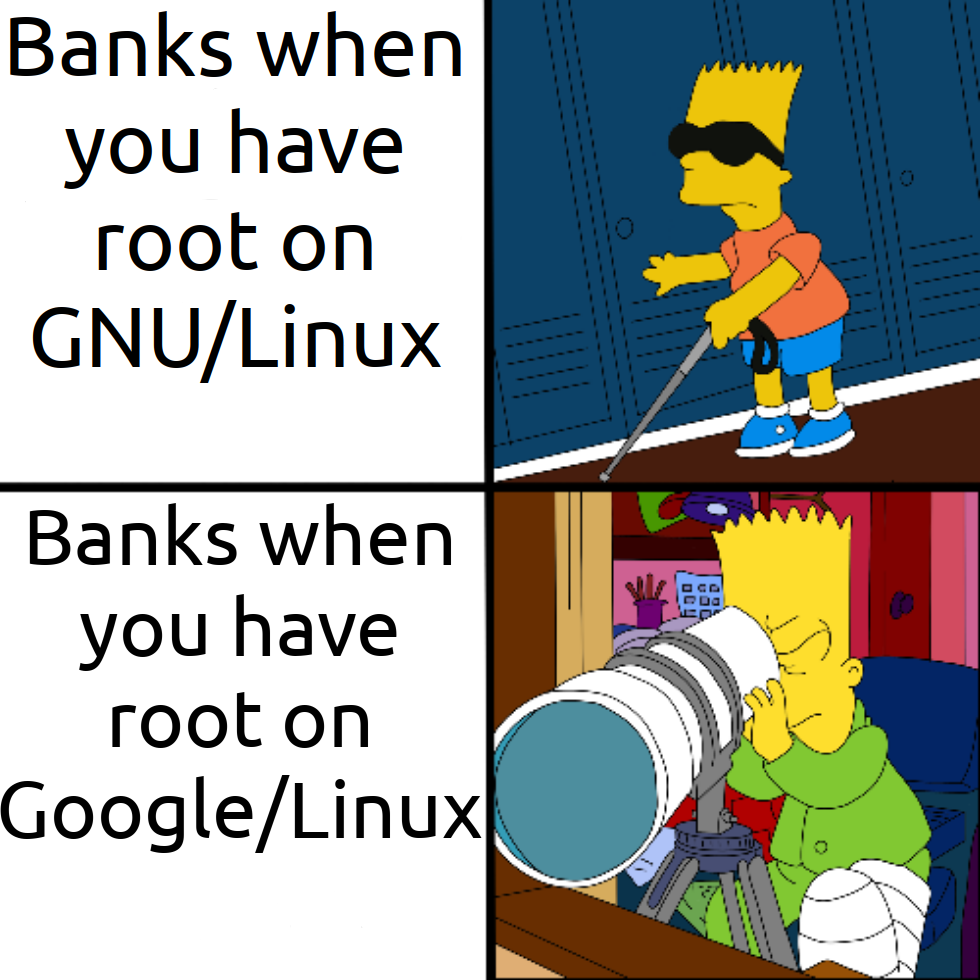this post was submitted on 04 Apr 2024
1020 points (98.8% liked)
linuxmemes
21210 readers
89 users here now
Hint: :q!
Sister communities:
- LemmyMemes: Memes
- LemmyShitpost: Anything and everything goes.
- RISA: Star Trek memes and shitposts
Community rules (click to expand)
1. Follow the site-wide rules
- Instance-wide TOS: https://legal.lemmy.world/tos/
- Lemmy code of conduct: https://join-lemmy.org/docs/code_of_conduct.html
2. Be civil
- Understand the difference between a joke and an insult.
- Do not harrass or attack members of the community for any reason.
- Leave remarks of "peasantry" to the PCMR community. If you dislike an OS/service/application, attack the thing you dislike, not the individuals who use it. Some people may not have a choice.
- Bigotry will not be tolerated.
- These rules are somewhat loosened when the subject is a public figure. Still, do not attack their person or incite harrassment.
3. Post Linux-related content
- Including Unix and BSD.
- Non-Linux content is acceptable as long as it makes a reference to Linux. For example, the poorly made mockery of
sudoin Windows. - No porn. Even if you watch it on a Linux machine.
4. No recent reposts
- Everybody uses Arch btw, can't quit Vim, and wants to interject for a moment. You can stop now.
Please report posts and comments that break these rules!
founded 1 year ago
MODERATORS
you are viewing a single comment's thread
view the rest of the comments
view the rest of the comments

Windows/Macos/Linux are designed around the fact that the person managing the device has root access, Android and iOS are designed around noone having root access.
Sure it's fine to mess around with rooted phone and look what's inside, but essentially for your daily operations having rooted phone is unnecessary security risk.
Yes and I consider that to mean I don't own the device. And there are plenty of Android forks specifically designed around you having root access.
The issue is that you don’t want to give some random untrusted process root access. You, the user, have root access as long as you’re capable of running processes as root, but that doesn’t mean you should.
There could be tons of apps on the iOS App Store or Google Play Store that are completely benign under the existing security model but do nefarious things when run as root. No one knows that for sure because they aren’t tested under root by Apple or Google.
The problem with root is that it’s giving the process the keys to the Ferrari. That’s long since been decided to be a bad security model. Far better to have the process request permission to access particular resources and you grant them on a case by case basis.
It's been awhile since I've used anything but Magisk but usually you have to set root permissions per app, or you can get Magisk notification to request access.